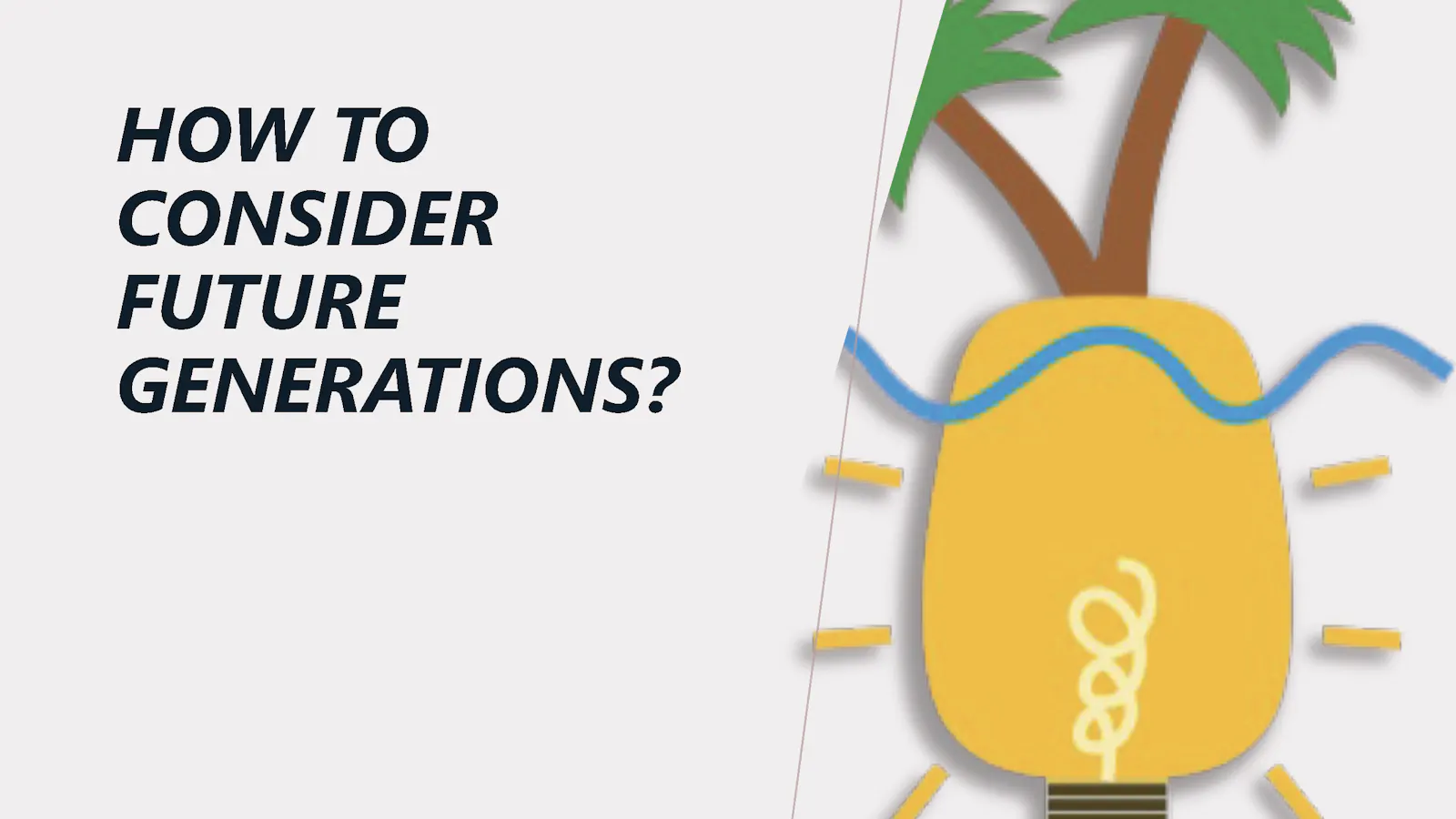How to consider future generations?
June 2023

What we do today and how we live today affects future generations, i.e. all people who will come after us. They are not yet alive to advocate their interests and visions, yet we have a moral responsibility to hand over a world full of opportunities to them.
Following this rationale, the United Nations (UN) advocates a ‘Declaration for Future Generations’, including a ‘future impact assessments’ or ‘generational tests’. It is not the only done taking steps in that direction.
Why future generations
The concept of intergenerational fairness and responsibility has gained prominence in recent years as concerns about sustainability, climate change, and the long-term impact of current decisions on future generations have come to the forefront. The UN proposal of a ‘Declaration for Future Generations’ builds upon this recognition and seeks to articulate the rights and responsibilities of present generations toward those who will inherit the world we leave behind.
In an increasingly interconnected world, the UN has continuously sought to address global challenges and protect the interests of both present and future generations. In line with this vision, a proposal for a ‘Declaration for Future Generations’ has emerged, aiming to establish a framework that safeguards the rights and well-being of those yet to come.
The declaration intends to establish a set of guiding principles and commitments for governments, international organisations, and other stakeholders to ensure the protection of the environment, promote social justice, and advance sustainable development for the benefit of all generations. By acknowledging the intrinsic value of future generations and the importance of intergenerational solidarity, the proposal seeks to foster a sense of collective responsibility for the well-being of humanity as a whole.
A ‘Declaration for Future Generations’ could have profound effects on global governance, policy-making, and societal attitudes, e.g. concerning:
Long-term planning and decision-making: The declaration would encourage governments and institutions to adopt a more forward-thinking approach in their policies and decision-making processes. It would necessitate considerations of the long-term consequences and intergenerational impacts of current actions, fostering a more sustainable and responsible approach to governance.
Environmental conservation and sustainable development: The declaration would emphasise the preservation of natural resources, ecosystems, and biodiversity, recognising their significance for future generations. It would promote the adoption of sustainable practices, renewable energy sources, and the reduction of greenhouse gas emissions to mitigate the effects of climate change and ensure a liveable planet for future inhabitants.
Social justice and human rights: The proposal seeks to address the inequities that persist between generations, ensuring that future generations have access to essential resources, education, healthcare, and opportunities for development. It could contribute to reducing intergenerational inequalities and promote social justice on a global scale.
Public awareness and participation: The declaration would help raise public awareness about the importance of considering the long-term impacts of decisions and actions. It would encourage active engagement of citizens, particularly youth, in shaping policies that affect their future, fostering a sense of empowerment and ownership over the destiny of the planet.
The UN ‘Summit of the Future in 2024 (Öffnet in neuem Fenster)’ offers an opportunity to agree on multilateral solutions for a better tomorrow, strengthening global governance for both present and future generations. So, we may see a ‘Declaration for Future Generations’ in autumn 2024.
Future impact assessment
In the run-up to the summit, the UN publishes a number of related policy briefs. The first of which concerns ‘Thinking and Acting on Behalf of Future Generations’ (Öffnet in neuem Fenster). It stresses that a secure and equitable future starts now. More concretely, the policy brief proposes concrete steps at the global level, drawing inspiration from national initiatives, including:
Envoy for Future Generations. Appointment of an envoy who will be the global voice for future generations, raising awareness about the impacts on them of the decisions we take today. An envoy could also help to strengthen foresight capacities to better understand long-term impact of current policies and activities.
Political declaration defining our duties to the future. This would be an opportunity to consolidate the commitments already made to future generations and to adapt these commitments to the new challenges of our era.
The policy brief also proposes to develop the practice of systematically ‘future-proofing’ key policies and programmes. This could e.g. include an approach to ‘future impact assessments’ or ‘generational tests’ on those decisions most likely to have long-term impact, such as on the environment, education, culture, technology, health or sustainable development. Such a ‘future-proofing’ could help to ensure that present actions do not compromise the well-being and sustainability of future generations.
To read this post you'll need to become a member. Members help us fund our work to ensure we can stick around long-term.
See our plans (Öffnet in neuem Fenster)
Bereits Mitglied? Anmelden (Öffnet in neuem Fenster)


